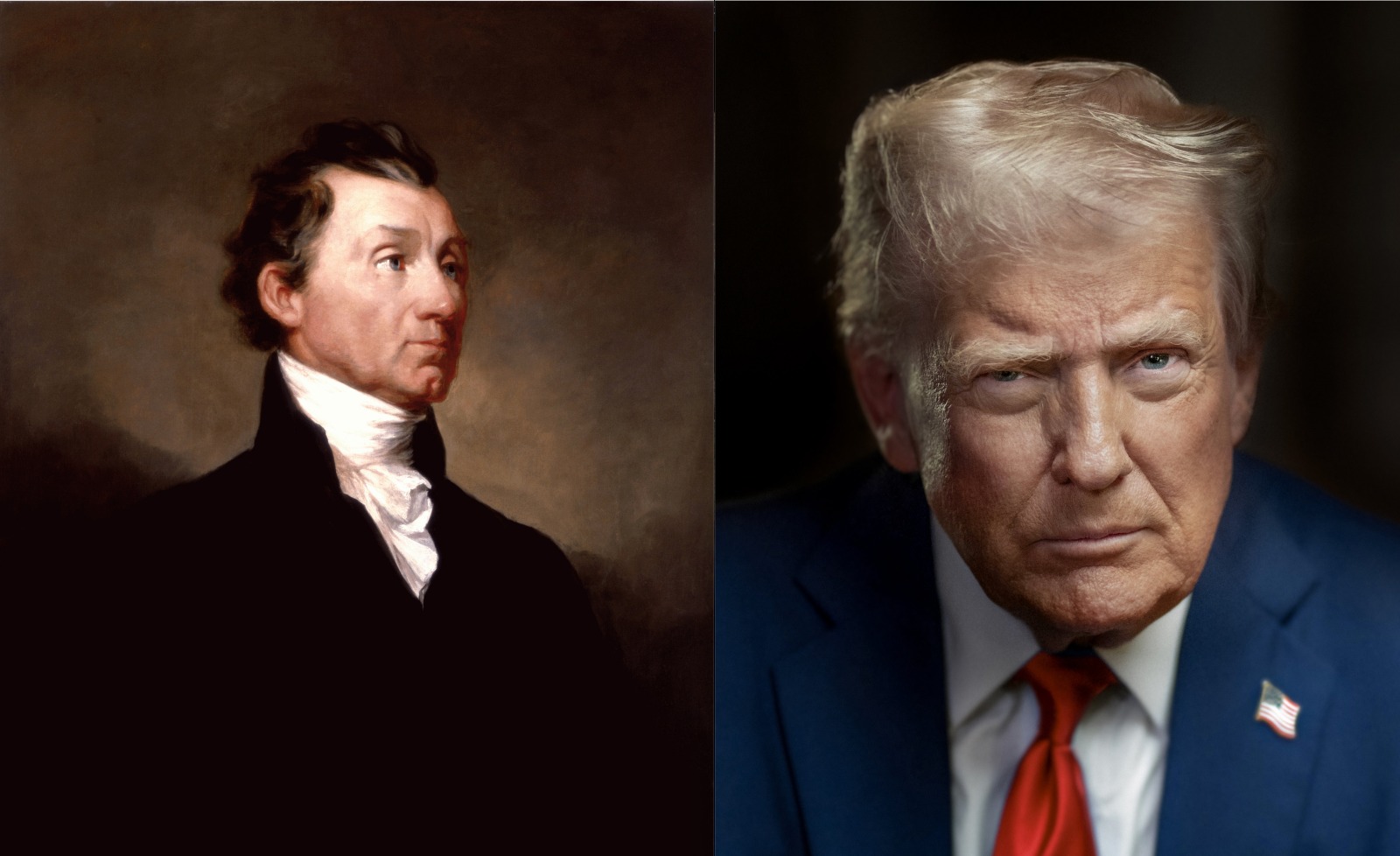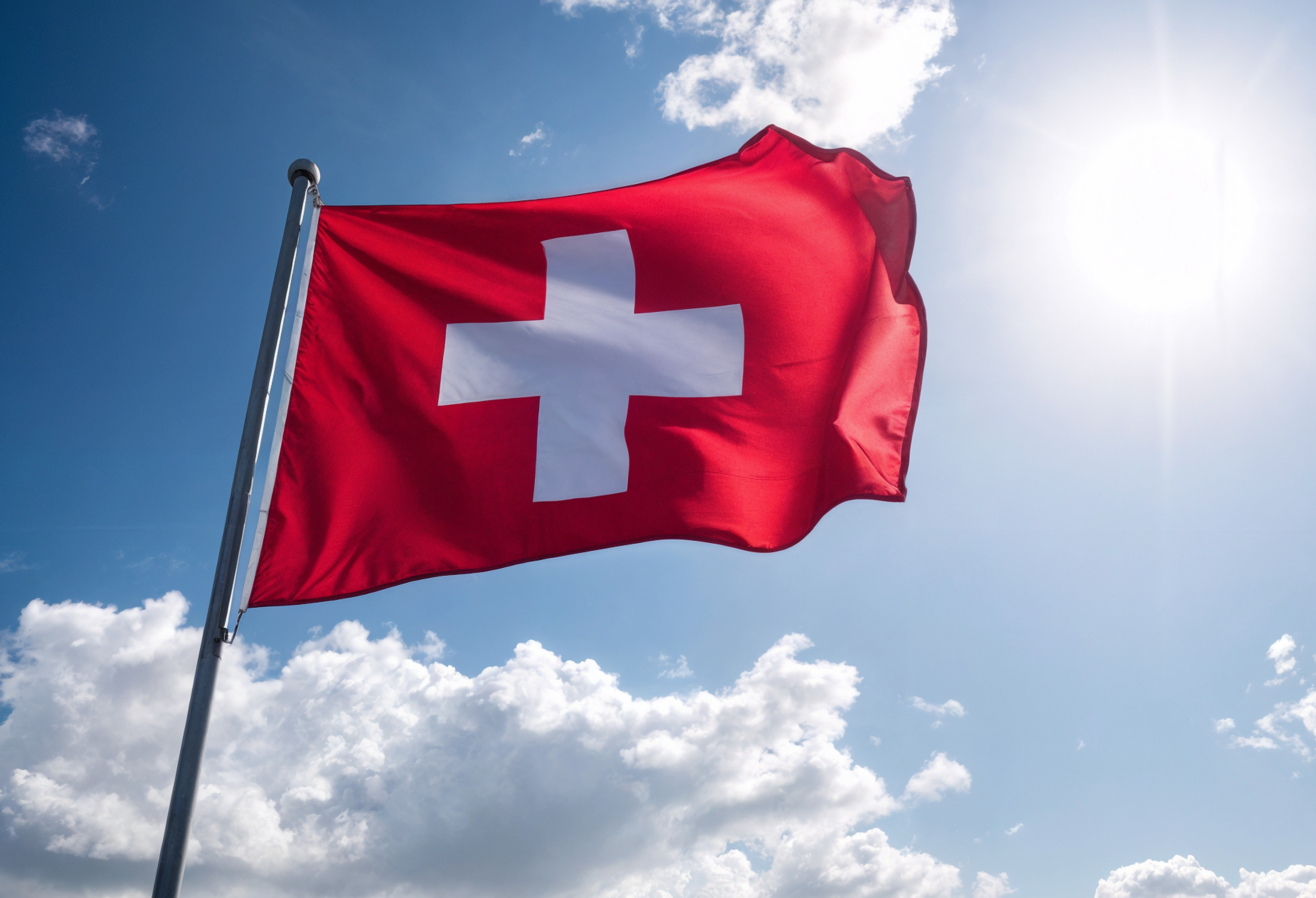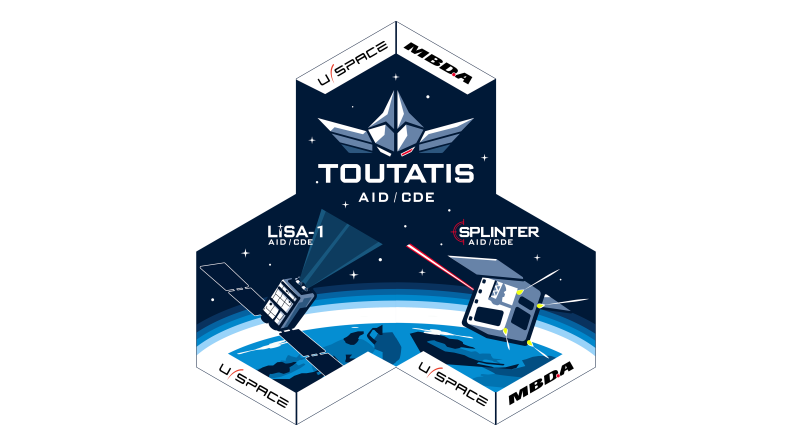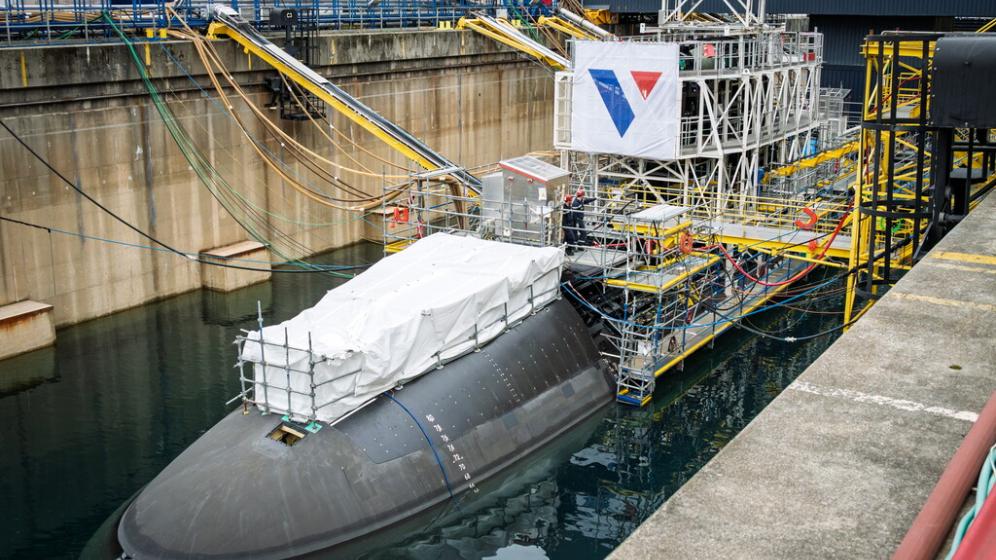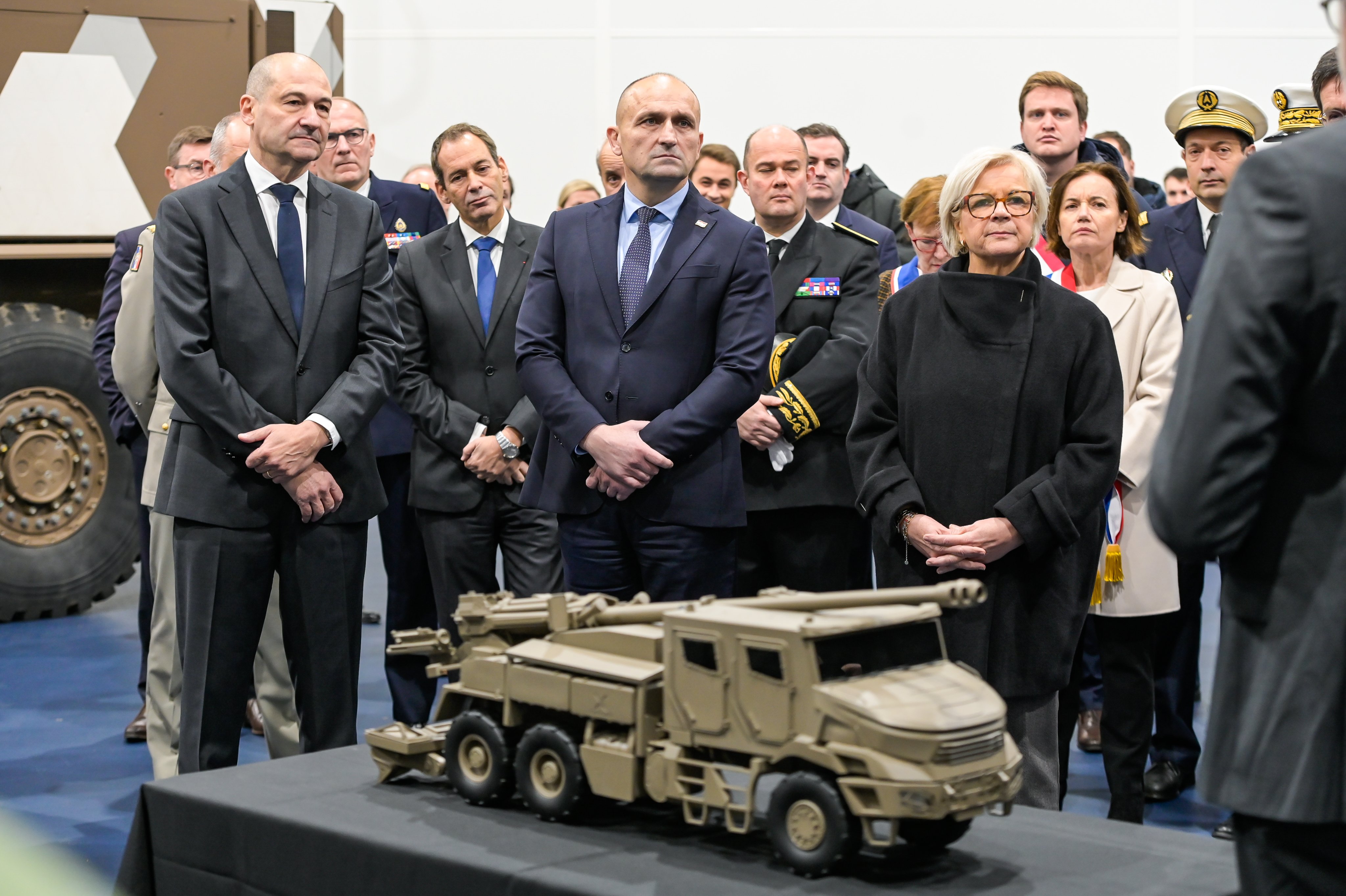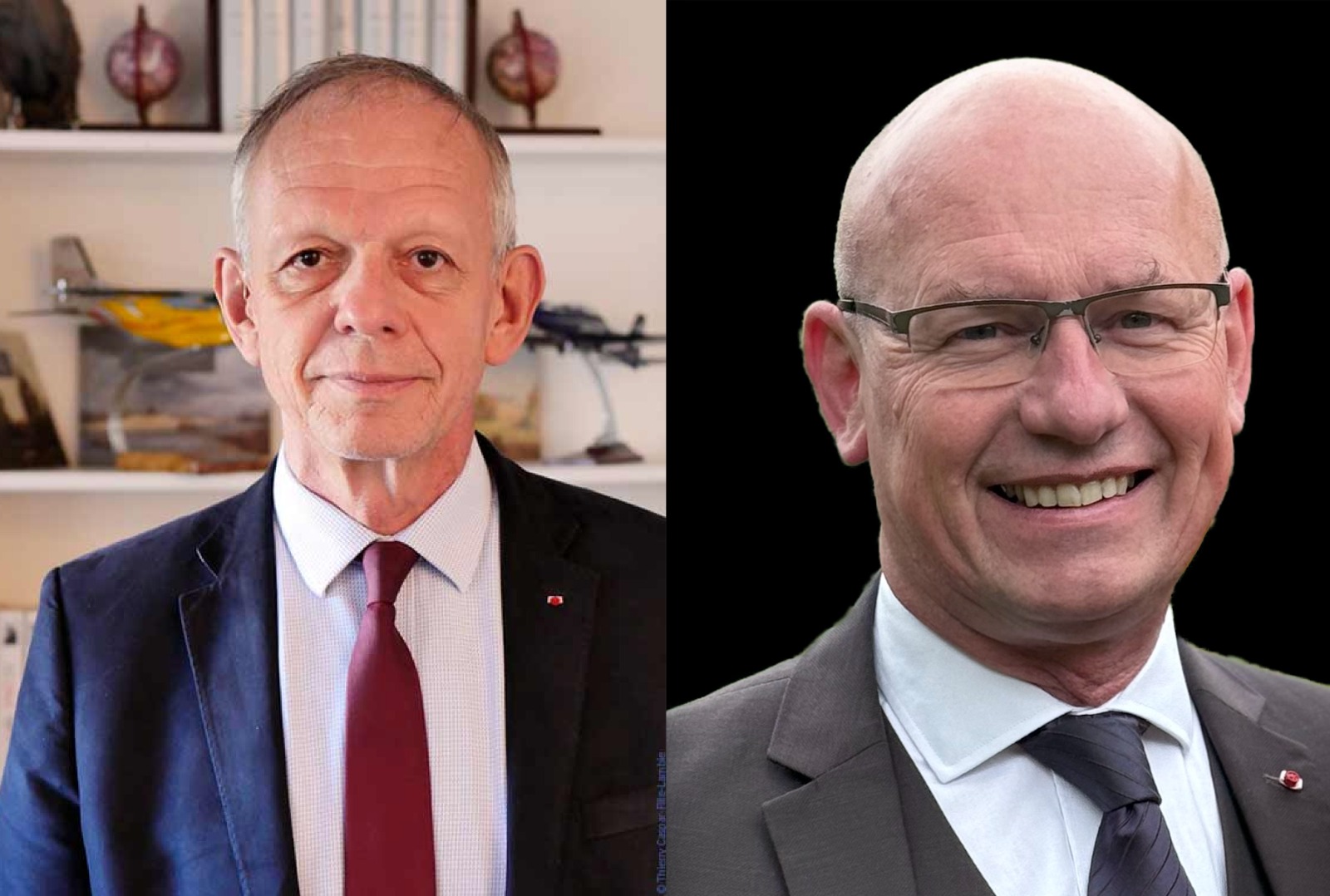Edition anglaise
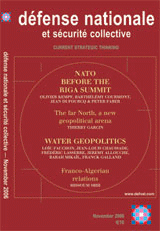
November 2006 - n° 691
Introduction to NATO feature - Olivier Kempf
Defense Nationale is devoting two issues per year to Europe as a defence entity, which represents one of the cornerstones of French defence policy. It is true that this engagement is not the only one, and that the highest-level civil and military authorities regularly cite France’s place within NATO. The Alliance and the European Union are not mutually exclusive, as has been well analysed by André Dumoulin.1 Neither does this mean that they must move towards fusion, or indeed confusion. Read more
France in an envolving NATO - Barthélémy Courmont
The ambivalence of the French posture within the Atlantic Alliance can be explained by the desire, in Paris, to favour the construction of a European security and defence identity while at the same time playing an important role within the NATO structures. By imposing itself as a new security threat, terrorism has thrown NATO’s traditional tactical scenarios into disarray. This in turn poses a double question, of the redefinition of France’s role in NATO, and of its perception of the fight against terrorism and the role of the EU-NATO tandem in confronting it.
NATO operations in 2006 - Olivier Kempf
The Balkans are no longer the Alliance’s top operational priority. NATO is maintaining its capability in Kosovo prior to its disengagement, and is keeping its liaison organisation, which advises the local governments in carrying out their defence reforms in line with Euro-Atlantic standards. The creation of an office in Belgrade is the latest sign of this. Today, NATO’s real priority is in Afghanistan, for a fairly simple reason: NATO is not absolutely sure of winning. In a sense, NATO’s operational future is at stake. Will it demonstrate in Kandahar that it is a world security agency? Other theatres must not be neglected. Maritime surveillance of the Mediterranean is an old example, as is the mission in Iraq. Over the last twelve months NATO has set foot in Africa by supporting the AU in Sudan, and has deployed the NRF in Pakistan, although the event remains controversial. New geographical theatres, new missions; an operational transformation of NATO has taken place.
Transatlantic dialogue - Jean Dufourcq, Peter Faber
Given the threat of Soviet expansionism at the time, the geostrategic alliance formed by North Atlantic countries was historically logical, geographically natural and operationally decisive. Its intergovernmental body (NATO), therefore, has been coexisting and evolving with its members, who have always preferred ad hoc adaptation to institutional integration. The upcoming Riga summit will most likely continue this tradition of adaptation to the current strategic requirements, although a break from past practices remains necessary. This article reflects this very point. As the work of two authors, one French and the other American, it highlights the sort of dialogue that North Americans and Europeans could–and should–hold if they hope to adapt their alliance to the strategic realities of the twenty-first century. The Alliance will have a future provided its members continue to work in partnership whenever their interests and approaches converge, and if they interact more effectively whenever their interests and priorities diverge.
Hiroshima and Yasukuni: Japan, a prisoner of its history - Bernard Dupuy d'Angeac
The Japanese are still torn between pacifism and national security requirements. Pacifism is gradually being replaced by patriotism built on the falsification of school history books, which appals Japan’s neighbours, while East Asian geopolitics are being buffeted by North Korean weapon tests and the revision of the Japanese Constitution. Can Japan break free from its history? It must first acknowledge the errors of the past, and could subsequently adopt a form of Gaullism. A non-nuclear Japan could then play a role in Asia appropriate to the world’s second economic power.
India-China: difficulties in cooperation - Alain Lamballe
China is selling to India a range of manufactured products at prices that defy competition, is installing high-tech companies and buying up others that are in difficulty, and submitting tenders for port modernisation projects. Faced with this onslaught, India is being circumspect: naturally it wants to develop relations with its northern neighbour, but wants to be able to control them, and to settle the frontier questions. Citing security problems, it is being reticent about overly liberal trans-Himalayan and maritime exchanges, and is keeping China at arm’s length from its port modernisation programme. On the other hand, India is allowing some of its big industrial groups to set up in China, where it is expanding in the banking sector.
European defence-a way to avert a Sino-American tragedy - Benoît Lugan
On a variety of levels–political, economic or even military–confrontation between the United States and China during the course of this century seems probable. Explaining first the background and the reasons for possible conflict, and their foreseeable consequences, this article argues that only a strong and influential Europe, given the current global balance of power, is capable of arbitrating the encounter and averting a disastrous outcome.
The far North, a new geopolitical arena - Thierry Garcin
The Arctic is as of now hostage to global warming, with changes to the icecap, to fish stocks and to Russian and Canadian sea-routes. Huge oil and gas fields (Barents Sea), exports by land and sea of raw materials, the development of methane tankers, nuclear pollution risks (the Russian Kola Peninsula), the question of sovereignty and zones of influence, as well as the importance of the region for American missile defence, are all crucial issues in this changing geostrategic arena.
Water: a strategic priority - Loïc Fauchon
Water resources nowadays are ever more unevenly distributed across the face of the world. With largely unrestrained population growth, unchecked pollution and significant climate change, some regions of the world are threatened with a shortage of water that could lead to intercommunal tensions. The answer lies primarily in a new attitude towards water, which implies consuming less and managing it more efficiently. The development and use of new technologies will help. But real priority must be given to water and its treatment. There are financial, ethical, governmental, energy-related and geopolitical answers, but the international community must take the initiative in implementing them.
Access to water for all - Jean-Louis Chaussade
Access to water is a universal right that has still to be made a reality; in other words, we must win the war on water for everyone by creating the conditions in which both the public and the private sectors can operate responsibly. Technical solutions exist (concessions, supply management, action to counter leakage), but it is the transfer of competence, of know-how and of social engineering that is argued in this article: local action in a global context.
Large-scale water transfers: an attempt at a classification - Henri Lasserre
In the face of predicted water shortages and their rather over-hyped corollary–twenty-first century wars over water resources–the solutions of integrated management sometimes seem outweighed by the size of the difficulties to be overcome, if only because of the problems of putting into practice solutions which must be agreed between a number of countries with varied interests. Managing the needs of several countries, and often of several competing sectors in each one, on the scale of a catchment area, is no small undertaking, especially if there is a history of mistrust between the different governments. Modern civil engineering techniques prompt a fresh look at the possibility of diverting very large volumes of water originating far from centres of consumption over great distances.
Nationalism and cooperation in Central Asia - Jeremy Allouche
The independence of the five Central Asian republics (Kazakhstan, the Kyrghyz Republic, Uzbekistan, Tajikistan and Turkmenistan) marks a turning-point in water management in the Amu Darya and Syr Darya basins. In Central Asia, water has always been a major issue for governments but the current geopolitical context, with national claims and regional interdependence inherited from the Soviet system, places water at the forefront of the region’s strategic issues.
Regional ambitions and national realities: India's hydraulic brakes - Barah Mikaïl
India is currently experiencing a remarkable upsurge in economic power. Its participation in various economic and technological developments has not escaped the eye of observers, who see in this the classic example of an emerging power. However the country has its problems. Above all, India today faces a series of internal challenges and projects on which its future is likely to depend. Water supply, at the national level, is a question of considerable importance: failure to master it could eventually become a brake on India’s economic ambitions.
Water-cause or target of conflict - Franck Galland
A factor in regional tensions, water is seldom the cause of war, rather the pretext. Changing threats and the evolution of warfare are making water a target of conflicts. The author offers solutions for managing the post-‘water war’ scene, by successful civil-military cooperation.
Sustainable development: a present-day metaphysical concept - Émile H. Malet
Sustainable development is at a critical turning point, excessively mediatised as an ideology that can correct every socio-economic dysfunction. Situated at this crossroads, with its multifaceted sciences, cultures and lifestyles, its overall view is clouded by each of the major players (governments, companies, NGOs) acting in their own interests. Such pessimism is not unrelated to the rise in influence of a globalisation that is struggling to combine necessary growth with a profit-related financial cosmopolitanism itself no longer hindered by territorial, cultural or ethical boundaries. Sustainable development calls for resistance to generalised polymorphic globalisation, while not limiting economic development in unstable and impoverished societies.
The evolution of Franco-Algerian relations - Missoum Sbih
Address by HE Missoum Sbih, Algerian Ambassador to France, on 30 June 2006 at the Ecole Militaire, Paris.
From land forces' airmobility to ‘aerocombat’: towards a tactical breakthrough - Jean-Claude Allard
The technological breakthrough of mobility in the third dimension, heralded by the helicopter, may now, thanks to the development of its weapon systems, become a tactical breakthrough, and open an era of ‘aerocombat’, vital when faced with a multiform, omnipresent enemy. To this end the ground forces of many countries are working to adapt the organisation, tactics and employment of combat helicopter units. For its part the French Army has created a robust and effective system that can serve as a model.


